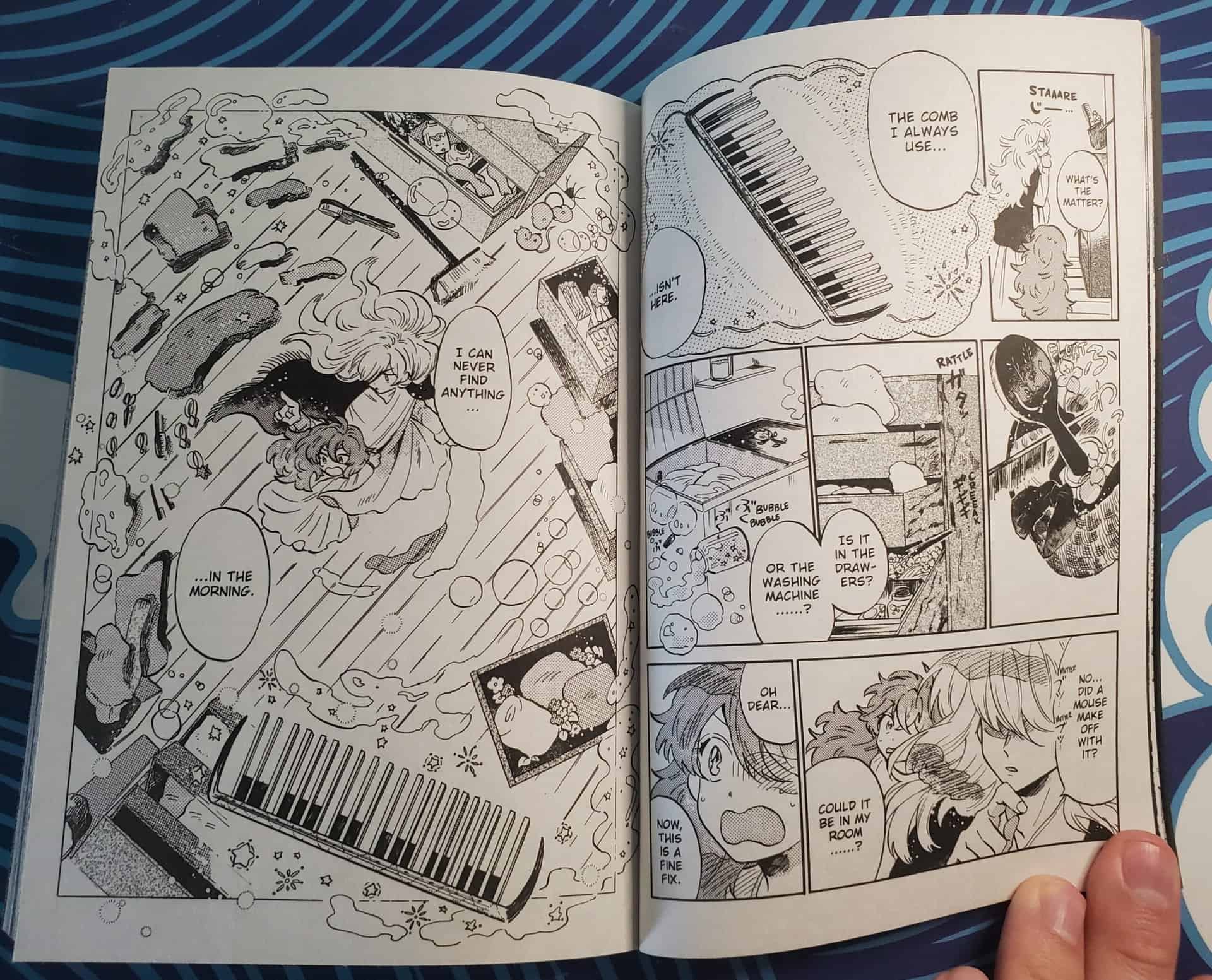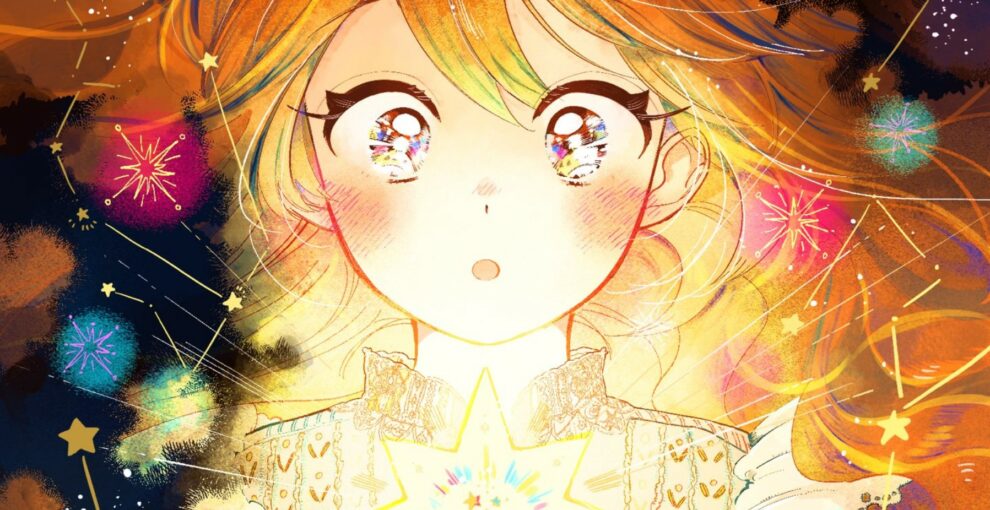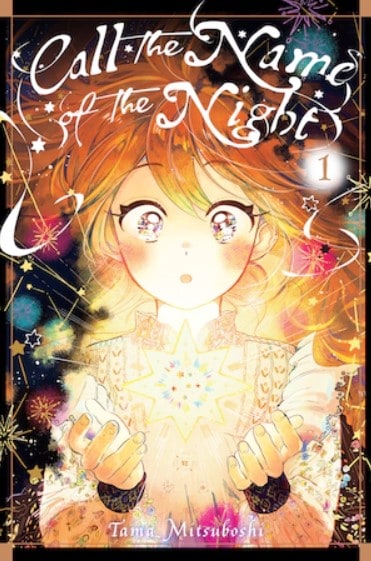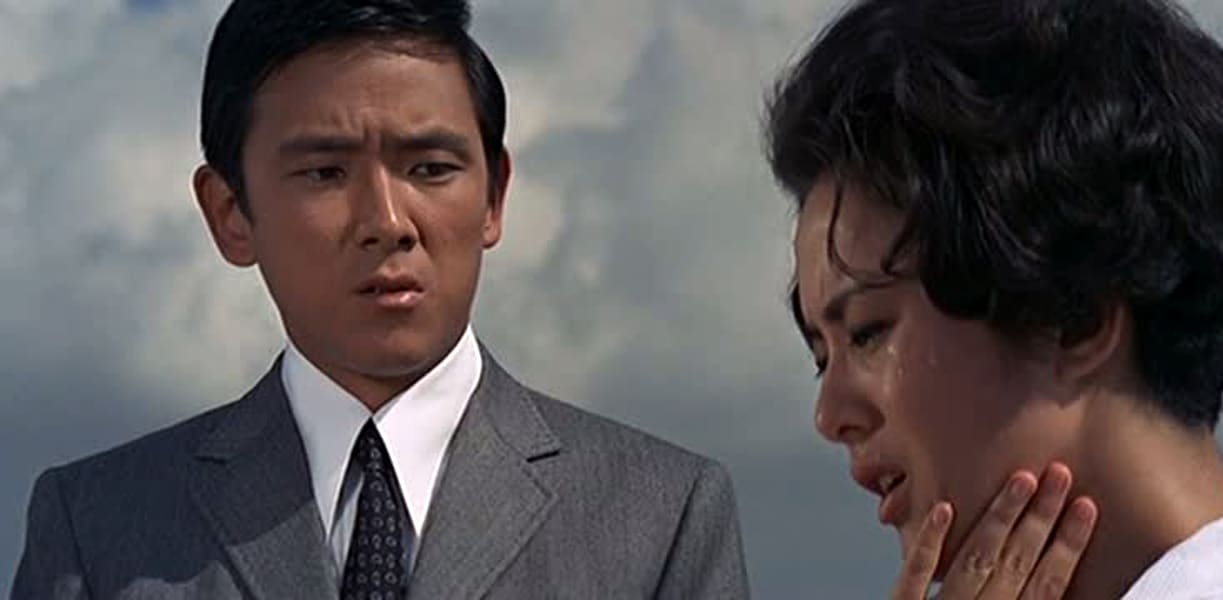“Deep in the forest, a curious pair reside: a young girl Mira, whose affliction leads her to call forth darkness whenever she's in distress; and her physician Rei, determined to seek a cure. Each day, she works to remember the light and bring back the person she used to be. But a sudden visit from Rei's friend, who harbors an interest in Mira's illness may be end of their peaceful days…” (Yen Press)
Existing in a space just outside of the world of humans, Tama Mitsuboshi's “Call the Name of the Night” is a picturesque fantasy/mystery complemented by a relaxed flow and adorable aesthetic. However, the approach does not mean the story is without conflict, as Mira's condition to summon the night can turn the idyllic life of her master into an object of fear when she is pushed out of her comfort zone. This gives the, otherwise, serene landscape an air of gloominess hovering over Mira and additional depth beyond the light-hearted activities surrounded by cute creatures and a whimsy.
Still, even as the book hints at a greater tragedy behind Mira's condition, the tone remains relatively upbeat and there is a constant sense of wonder in every activity the young girl takes on with her master. This relationship is also presented as entirely wholesome, like a father-daughter one, that imbues both characters with a comfortable charm. Consequently, the inaugural volume establishes a familiarity that will instantly endear the reader to both characters.

The admittedly downside of this approach is that the series can be too relaxed for those expecting more drama or action, and is even devoid of comedy which is a common tool to add tonal variety. However, this further feeds into “Call the Name of the Night” as a ‘comfort read' since it is accessible to just jump in and unwind without much commitment. The tone of the book will, undeniably, speak to a certain audience but its nuanced pace will limit appeal beyond readers who enjoy relaxed reads. This could all change in later volumes, but volume one certainly gives a relaxed approach that stays consistent enough to give the impression the book will stick to wholesome fantasy with light drama elements.

The art of Tama Mitsuboshi is best described as simply ‘pretty,' with the bright and expressive cover being the perfect description of the sense of wonder and whimsy that the mangaka is able to convey throughout. The artist's command over her characters, from their emotional responses to their mannerisms, perfectly encapsulates the personas of each and it is a true joy to see Mari interact with her master. However, the art impresses the most when Mitsuboshi explores how the characters interact with the environment as several pages of dialogue-heavy conversation will culminate in large panels that are absolutely gorgeous. One could easily appreciate “Call the Name of the Night” on artistic merit alone with Mitsuboshi's ability to draw the readers into the fantastical world they crafted.
“Call the Name of the Night” is an impressive debut from a creator with a strong sense of visual storytelling. However, the story, while wholesome and relaxing, lacks drama in its soft approach which makes it difficult to recommend for those who need more than atmosphere and aesthetics. Overall, the series is certainly worthy of attention, and the first volume musters enough intrigue to build excitement to see how the story develops–those uncertain about, if they are interested, may want to wait for a few volumes to release before committing.
















